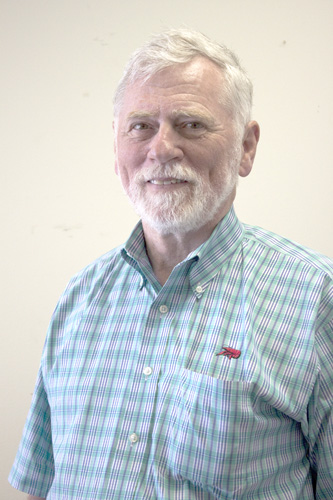When environmentally interested people spoke of sustainable activities some years ago, businesses, political leaders and government agencies were less than interested, assuming sustainability was a costly, anti-economic endeavor.
Today, virtually all major corporations have executives and their staffs leading the corporations’ sustainability programs. They find that it is a very positive morale factor with their employees, is appreciated by their investors and the public at large and, most of all, makes economic sense and is important to their bottom line.
In spring 2003 and 2007, I offered a course entitled Environmental Analysis of Loyola University. During the semester, the students inventoried Loyola’s sustainable facilities and practices. We were pleasantly surprised to find that the university was doing a pretty good job.
The Monroe Library was new and full of energy-efficient operations. Most buildings on campus were using florescent lighting and had auto-switches in public rooms. The Thomas Hall renovations will result in Loyola’s first Leadership in Energy and Environmental Design-certified building.
All those accomplishments make sense to the university operational staff, because the sustainable steps saved lots of money that was previously wasted. We found that the working policy was to always take steps that are good for the budget, especially when they are good for the environment.
In my career, making and saving money has been the motivation for most of our environmental improvements. Yes, we have the Clean Air Act, Clean Water Act, and others, and they were designed to protect the public good via a regulatory and command structure.
But I’m reminded of the biggest breakthrough we had in cleaning up our environment, at least to the extent it has been improved. It came when the Environmental Protection Agency launched the Toxic Release Inventory in 1988, which required industry to self-report its air, water and ground injection waste.
When the first year’s numbers were released to the public (about five billion pounds of waste were recorded), major changes began to take place. All sorts of sustainable actions were designed and implemented, and there were huge reductions of pollutants being expelled into the environment.
People rejoiced, as well they should have, at the reduction of pollutants. The general public assumed that this happened because the companies were embarrassed and had been exposed as bad neighbors. Certainly some of that is true.
But, I am told by the management of several chemical plants that the real motivation that resulted in reduction of releases was the phone calls they received from their headquarters. Upper management wanted to know why the plants were wasting so much “by-product.”
An interesting use of words: pollutants vs. by-products. What we see as something harmful, industry sees as a product that has value – what a convenient comparison.
The huge reductions that immediately happened, and continue to be refined, were due to the companies finding ways to use their by-products to produce additional valuable chemical products, thus helping the bottom line as well as avoiding being out of compliance with EPA’s regulations. One company, American Cyanamid (now named Cytec), reduced its regulated releases by 40 percent within three years.
The trick in designing a sustainable system is getting people to think long-term. Sustainable projects make money in the long run, but often cost more up front; they are a good investment. This reluctance to invest for the future is the biggest barrier to having a sustainable environmental plan.
An important component is having sustainable savings stay as savings, and not just allow politicians to spend the “saved” money on other questionable projects. I feel like we are playing Whack-a-Mole – save money here, spend it there with no gain.
Some of us are motivated to clean the environment because it is the socially just thing to do. Others do it to be more economically efficient and some do it to obey the law. In the end, we have a cleaner environment, and that is good.
Bob Thomas is the Endowed Chair in Environmental Communications.
He can be reached at
On the Record is a weekly column
open to any member of Loyola’s
faculty and staff. Those interested
in contributing can contact








